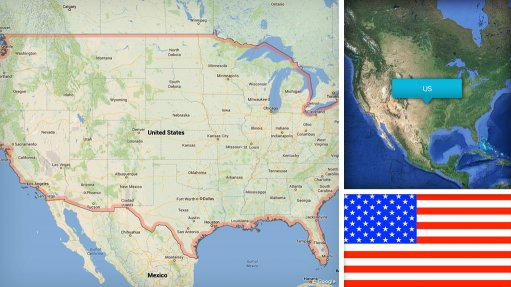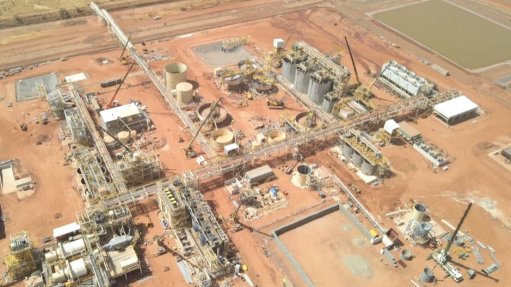Mining rights and indirect change of control– judge settles old debate
This article has been supplied by the author and has not been written or solicited by Creamer Media. It may be available only for a limited time on this website.
By Giada Masina & Francois Sieberhagen from Webber Wentzel
A recent Supreme Court judgment has clarified that ministerial consent under section 11 of the MPRDA is needed for both direct and indirect changes of control of a company that holds mining rights
It has always been clear that, in terms of section 11 of the Mineral and Petroleum Resources Development Act, 2002 (MPRDA), a prospecting or mining right cannot be transferred from one company to another without the Minister of Mineral Resources and Energy's consent.
But there has always been debate on what exactly the legislature meant when referring to an "interest" in a mining right and a "controlling interest" in a company being "alienated or otherwise disposed of", which also requires consent. Was the intention only to refer to a change of control of a company that is the holder of a right (i.e. a direct change of control) or to include also a change of control of companies higher up the corporate chain which ultimately, but not directly, control the holder of a right (i.e. an indirect change of control)?
In the case of Mogale Alloys Proprietary Limited v Nuco Chrome Bophuthatswana & Others [2011] JOL 26907, on 11 March 2011, the court adopted a wide and purposive interpretation of section 11. It made it clear that the Minister's consent is required before any transaction that results in a loss of control, even if another party is not gaining control. Some uncertainty, however, remained on whether section 11 applies to an indirect change of control (or loss of control).
The case of Arqomanzi Proprietary Limited v Vantage Goldfields Proprietary Limited (In Business Rescue) and 9 Others, under case number 3772/2020, related to an Australian company, Macquarie Metals (Pty) Ltd, which acquired ultimate control high up the corporate chain in a group of companies, where subsidiaries far down the chain held mining rights. The transaction involved the issue of shares in the holding company, Vantage Goldfields Limited, to Macquarie, which thereafter constituted 98% of the shares in Vantage.
The court a quo held that a controlling interest is not limited to a direct controlling interest. It includes an indirect controlling interest. The Minister argued that if the legislature intended to restrict the prohibition in section 11 to a direct controlling interest in a company that holds a right, it would have said so in express terms. The court held that section 11 is a protective mechanism to ensure that the objects of the MPRDA are achieved. It would be inconsistent with the MPRDA and its objects to exclude a change of an indirect controlling interest, especially considering the state's responsibility to act as custodian of South Africa's mineral resources and the objects relating to equitable access to the nation's mineral resources and transformation.
The Arqomanzi judgment was taken on appeal. On 27 June 2023, the Supreme Court of Appeal handed down a unanimous judgment which confirms the court a quo's finding. The court held that the issue of shares to Macquarie severely diluted the existing shareholders' shareholding in Vantage. The effect was that the shareholders, by consent, alienated or disposed of their controlling interest in Vantage, and indirectly in the holders of the mining rights. This indirect change of control of the holders of mining rights required the Minister's prior written consent. The court stated that it would be absurd to confine the interpretation of section 11 to direct cessions and disposals since, by doing so, Ministerial consent and therefore the objects of the MPRDA could easily be thwarted.
There can therefore no longer be any doubt that the reference to change of control in section 11 should be given a very broad interpretation. It applies to both a loss of control and an indirect change of control and can be triggered by an issue of new shares in a company where the existing shareholders are not actually selling any shares.
Comments
Press Office
Announcements
What's On
Subscribe to improve your user experience...
Option 1 (equivalent of R125 a month):
Receive a weekly copy of Creamer Media's Engineering News & Mining Weekly magazine
(print copy for those in South Africa and e-magazine for those outside of South Africa)
Receive daily email newsletters
Access to full search results
Access archive of magazine back copies
Access to Projects in Progress
Access to ONE Research Report of your choice in PDF format
Option 2 (equivalent of R375 a month):
All benefits from Option 1
PLUS
Access to Creamer Media's Research Channel Africa for ALL Research Reports, in PDF format, on various industrial and mining sectors
including Electricity; Water; Energy Transition; Hydrogen; Roads, Rail and Ports; Coal; Gold; Platinum; Battery Metals; etc.
Already a subscriber?
Forgotten your password?
Receive weekly copy of Creamer Media's Engineering News & Mining Weekly magazine (print copy for those in South Africa and e-magazine for those outside of South Africa)
➕
Recieve daily email newsletters
➕
Access to full search results
➕
Access archive of magazine back copies
➕
Access to Projects in Progress
➕
Access to ONE Research Report of your choice in PDF format
RESEARCH CHANNEL AFRICA
R4500 (equivalent of R375 a month)
SUBSCRIBEAll benefits from Option 1
➕
Access to Creamer Media's Research Channel Africa for ALL Research Reports on various industrial and mining sectors, in PDF format, including on:
Electricity
➕
Water
➕
Energy Transition
➕
Hydrogen
➕
Roads, Rail and Ports
➕
Coal
➕
Gold
➕
Platinum
➕
Battery Metals
➕
etc.
Receive all benefits from Option 1 or Option 2 delivered to numerous people at your company
➕
Multiple User names and Passwords for simultaneous log-ins
➕
Intranet integration access to all in your organisation






















